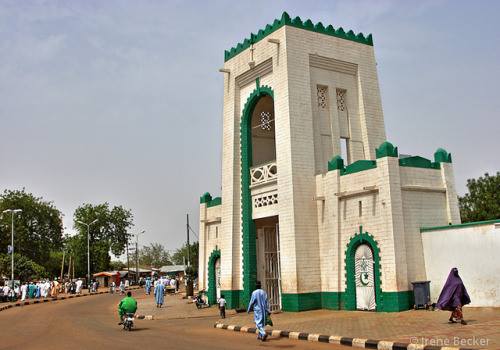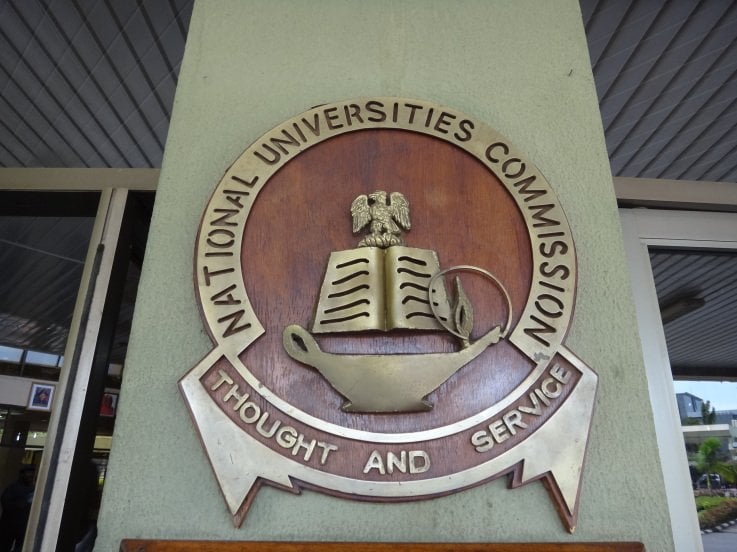
National Universities Commission has dissociated itself from lists that surfaced on the web, ranking 100 universities in the country.
At least two rankings of the Top 100 and Top 50 universities have circulated on the internet since last week, and been the focus of intense debate and disagreement in public forums.
The ranking was purportedly done based on the performance of the universities and their ability to meet the requirements for a standard school.
A counter statement from university regulation agency Monday evening said “the lists did not emanate from the NUC.”
Searches on 2013 rankings of universities in Nigeria still pulled tens of millions of hits on search engines—nearly two weeks after the first posts went online.
By Monday, search for Top 50 universities in Nigeria pulled 34.7 million hits—more than triple the 11.1 million hits scored for Top 100 universities in Nigeria.
With NUC’s rebuttal, it is uncertain where the story was first posted. But several websites created fresh posts or linked to other sites carrying the same story with slight variations.
Reactions of some schools to this ranking
Websites of universities favourably ranked on the list carried chest-beating stories about their achievement.
Federal University of Technology, Owerri (FUTO), boasted about grabbing 12th position on the list, calling it a “marked improvement on its previous rating of 48.”
On its website, (http://www.futo.edu.ng/tabid/272/id/70/p/9/futo-hits-12th-position-in-the-rating-of-top-100-best-universities-in-nigeria-by-nuc.aspx) FUTO said its “drive for quest for excellence was yielding positive dividends for the university.”
University of Nigeria, Nsukka praised the rankings potential to push schools to improve their performance.
In a story syndicated by the News Agency of Nigeria (NAN)and carried on The Nation (http://thenationonlineng.net/new/campus-life/unn-commends-nuc-ranking-of-universities/) an official said UNN had facilities in place and was transforming itself in hopes of clinching anything “between the first and third positions in the next ranking.”
By April 22, the lists were hot-potato topics on here on SchoolGist.COM.NG —where students and graduates of schools variously ranked on the lists congratulated their schools and took pot-shots at one another, See what people said at List Of Top 100 Universities In Nigeria 2013.
Reactions from Individuals
NUC’s denial of the list came Monday, more than a week after the posts—and too late, analysts say.
NUC’s not having any such list on its website hasn’t cleared the commission. Instead, analysts believe it should take responsibility for failing to monitor its online presence and news mentioning it.
“If the rankings have been on the net for a week before they got to know, that means they are not internet savvy,” says Adegbola.
Speculating how NUC could have missed the story for long, he suggests the commission has neither a twitter page or facebook page.
“If they had a twitter page, they would have known the moment that thing came up, because people would have tweeted on it.”
People did tweet and post—hundreds and hundreds of times, but NUC couldn’t have responded adequately.
A quick check: There is no Twitter handle for the NUC and a Facebook page under its name, started in 2010, has only 288 likes and no recent posts.
This is what NUC did in defense
In the absence of huge campaign on social media to counter the rankings story, NUC stuck to traditional mainstream media.
It advised stakeholders in university education and the public to “ignore the spurious lists of ‘Top 100’ and ‘Top 50’ universities, being peddled by those, who appear bent on causing disaffection in the Nigerian university system.”
Its first-ever ranking of universities was in 2002, based on performance of academic programmes in schools, using results taken from its accreditation of schools between 1999 and 2000.
•In 2004, for the second time, it ranked universities on grounds of:
•Percentage of programmes with full accreditation
•Compliance to carrying capacity
•What proportion of academic staff are professors
•What proportion of staff and students are foreigners
•Staff with outstanding academic achievements
•Research output
•Student completion rate
•PhD graduate output for the year
•Stability of the university calendar
•Student-to-PC ratio
Since 2006, it has toyed with introducing accreditation for schools alongside one for the programme. The institutional accreditation will include “governance and administration, financial stability, admissions, personnel services, institutional resources, student academic achievement, institutional effectiveness, and relationships with constituencies inside and outside the institution,” said NUC in a statement Monday.
It is only a buildup to its next ranking exercise, but it insists the “outcome will be made public, appropriately.”
And now, what is your take on this "fake" ranking results, what various schools like FUTO, UNN etc have claimed about it, what the public is saying, and NUC's inability to debunk the news until now? Comment below

